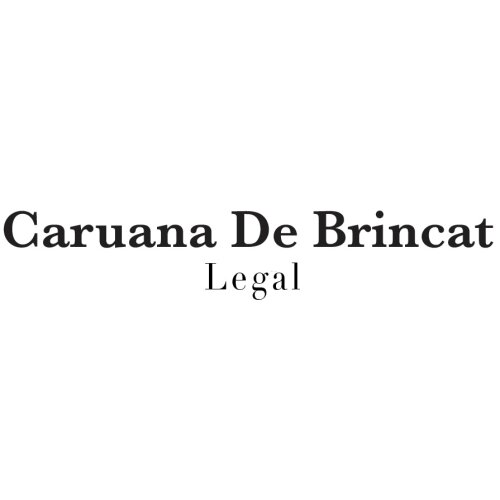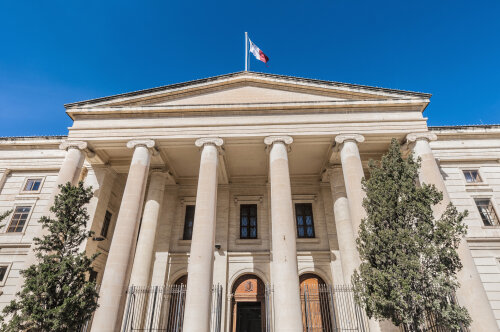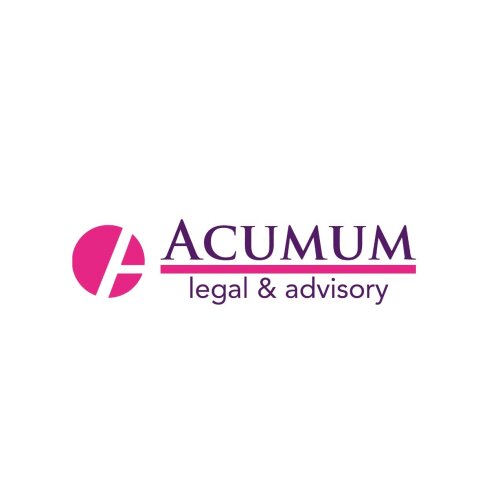Best Corporate Governance Lawyers in Malta
Share your needs with us, get contacted by law firms.
Free. Takes 2 min.
Or refine your search by selecting a city:
List of the best lawyers in Malta
About Corporate Governance Law in Malta
Corporate governance in Malta refers to the frameworks, rules, and processes by which companies are directed and controlled. Malta has embraced international standards of corporate governance, recognizing its importance in promoting accountability, transparency, and effective management of businesses. The legal framework combines legislation, regulations, and non-binding codes that apply to different types of business entities, both public and private. As Malta continues to grow as a hub for finance, gaming, and other dynamic industries, proper corporate governance is essential to maintain investor confidence and ensure compliance with local and international regulations.
Why You May Need a Lawyer
Legal advice is essential in corporate governance for several reasons. Companies and their boards often require guidance to navigate complex regulatory landscapes and ensure they are meeting statutory obligations. Common situations where legal help is needed include:
- Setting up or restructuring a company's governance framework
- Ensuring compliance with the Companies Act and sector-specific regulations
- Drafting or reviewing corporate policies, shareholder agreements, and board charters
- Advising boards and senior management on their duties and liabilities
- Handling conflicts of interest and disputes among stakeholders
- Supporting public companies with regulations imposed by the Malta Financial Services Authority (MFSA)
- Negotiating mergers and acquisitions in compliance with governance requirements
Legal professionals can offer critical support in managing risks, maintaining reputational integrity, and ensuring that the company avoids costly penalties or litigation.
Local Laws Overview
The core piece of legislation governing companies in Malta is the Companies Act (Chapter 386 of the Laws of Malta). This Act sets out the legal structure for private and public companies, directors' duties, shareholder rights, reporting obligations, and procedures relating to meetings and resolutions.
The MFSA issues additional guidance, especially for entities in regulated sectors such as finance and gaming. The Corporate Governance Code, published by the MFSA, outlines best practices in areas such as board composition, transparency, risk management, and stakeholder engagement. While some of its provisions are voluntary, listed companies are generally expected to comply or explain divergences.
Key aspects of Malta's corporate governance regime include:
- Board of directors must act in good faith and in the company's best interests
- Records of meetings and decisions must be properly kept
- Annual returns and financial statements must be filed with the Malta Business Registry
- Shareholders have rights to information, participation, and voting
- Specific rules apply to regulated sectors, including additional disclosures, fit and proper tests, and internal control requirements
- Corporate social responsibility and sustainability reporting is increasingly encouraged, especially for larger companies
Breaches of corporate governance standards can lead to penalties, disqualification of directors, or even criminal prosecution in cases of fraud or gross misconduct.
Frequently Asked Questions
What is corporate governance?
Corporate governance refers to the structures and processes for the direction and control of companies, focusing on transparency, accountability, and protection of stakeholder interests.
Which laws regulate corporate governance in Malta?
The main legislation is the Companies Act. There are also sector-specific regulations and non-binding codes issued by the MFSA and other authorities.
Do all companies in Malta have to comply with corporate governance rules?
Yes, but the degree of compliance can vary. Public companies, especially those listed on the Malta Stock Exchange, have stricter requirements than small private companies.
What is the role of directors under Maltese law?
Directors have a fiduciary duty to act honestly, with due diligence, and in the best interests of the company. They are legally responsible for compliance with statutory obligations.
How are shareholders protected under Maltese corporate governance rules?
Shareholders have rights to information, to attend meetings, to vote, and to challenge certain decisions. The law provides mechanisms for minority protection.
What happens if a company breaches governance standards?
Potential consequences include fines, penalties, civil liability, director disqualification, and in severe cases, criminal prosecution.
Is there a code of best practice in Malta?
Yes, the MFSA issues a Corporate Governance Code that provides guidelines for companies, especially those in regulated sectors. Compliance is expected, with deviations to be explained.
How often must boards meet in Malta?
The law does not set a strict frequency, but boards are expected to meet regularly enough to fulfill their duties. Company statutes may specify minimum requirements.
Are there special rules for listed companies?
Yes, listed companies must adhere to additional disclosure and reporting standards, and are generally bound by the full Corporate Governance Code.
Can foreign companies operating in Malta be subject to local corporate governance rules?
Yes, any company registered or conducting business in Malta must comply with Maltese law and relevant governance requirements.
Additional Resources
Individuals or entities seeking further information or guidance on corporate governance in Malta may consult the following:
- Malta Financial Services Authority - Regulator and source of the Corporate Governance Code
- Malta Business Registry - Registrar for company filings and documentation
- Chamber of Commerce, Enterprise and Industry - Business support on governance issues
- Institute of Directors Malta - Professional body promoting good governance standards
- Professional legal and accounting firms specializing in corporate law and governance
Next Steps
If you require legal advice or support related to corporate governance in Malta, start by compiling relevant documents such as your company statute, board meeting records, and any policies or procedures you have in place. Identify the specific issue or question you wish to address.
Next, consider reaching out to a qualified lawyer or law firm with expertise in corporate governance and Maltese company law. An initial consultation can help clarify your obligations, highlight potential risks, and outline practical solutions. For regulated sectors, it is advisable to select professionals with experience in dealing with the MFSA or relevant authorities.
Ongoing compliance with corporate governance standards is key to your company’s success. Regularly review your practices, stay updated with legal changes, and seek expert advice whenever significant decisions or challenges arise.
Lawzana helps you find the best lawyers and law firms in Malta through a curated and pre-screened list of qualified legal professionals. Our platform offers rankings and detailed profiles of attorneys and law firms, allowing you to compare based on practice areas, including Corporate Governance, experience, and client feedback.
Each profile includes a description of the firm's areas of practice, client reviews, team members and partners, year of establishment, spoken languages, office locations, contact information, social media presence, and any published articles or resources. Most firms on our platform speak English and are experienced in both local and international legal matters.
Get a quote from top-rated law firms in Malta — quickly, securely, and without unnecessary hassle.
Disclaimer:
The information provided on this page is for general informational purposes only and does not constitute legal advice. While we strive to ensure the accuracy and relevance of the content, legal information may change over time, and interpretations of the law can vary. You should always consult with a qualified legal professional for advice specific to your situation.
We disclaim all liability for actions taken or not taken based on the content of this page. If you believe any information is incorrect or outdated, please contact us, and we will review and update it where appropriate.
Browse corporate governance law firms by city in Malta
Refine your search by selecting a city.
















